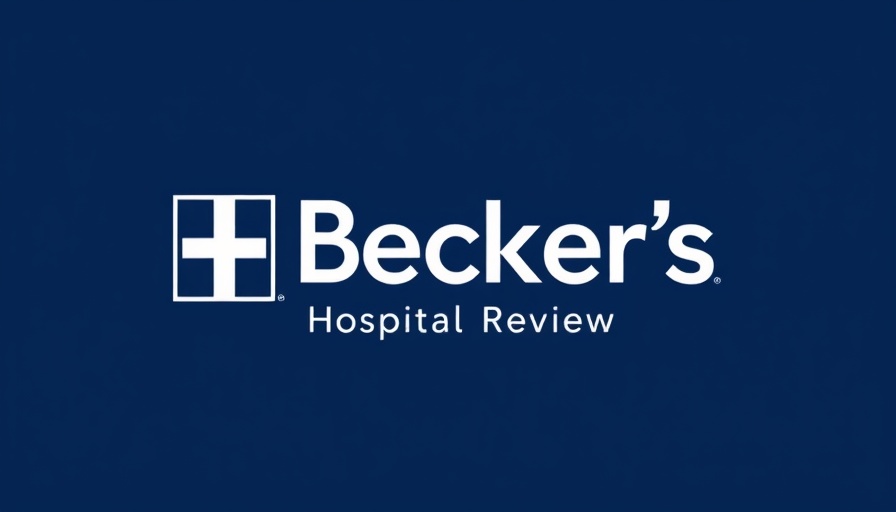
CMS Reverses EMTALA Guidance: What It Means for Emergency Abortion Care
In a significant policy shift, the Centers for Medicare & Medicaid Services (CMS) has rescinded its 2022 guidance related to the Emergency Medical Treatment and Labor Act (EMTALA) that reinforced the obligation of hospitals to provide emergency abortion care. This decision, made on June 3, 2023, retracts federal protections previously granted to healthcare providers who offered such care in states that impose restrictions or bans.
The Withdrawal of Guidance: Context and Implications
The original guidance was issued in July 2022, following the U.S. Supreme Court's decision to overturn Roe v. Wade, aimed at ensuring that clinicians were shielded under EMTALA when treating pregnant patients who sought emergency services. EMTALA mandates that Medicare hospitals provide appropriate medical treatment to all patients, regardless of their circumstances, to prevent discrimination and ensure access to essential services.
Despite the withdrawal of the guidance, CMS has affirmed its commitment to enforcing EMTALA, emphasizing that it will continue to act in emergency situations where the health of pregnant women or their unborn children is at risk. However, this shift raises concerns among abortion rights advocates regarding potential consequences for patient care during critical emergencies.
The Mixed Reactions: Supporters and Opponents Speak Out
The decision has elicited polarized reactions. Supporters from anti-abortion organizations celebrated the move, claiming it reinforces the sanctity of life and aligns with the Heritage Foundation's Project 2025, a set of pro-life recommendations. Marjorie Dannenfelser, president of SBA Pro-Life America, noted that this decision is a victory for both mothers and unborn children.
Conversely, abortion rights proponents and reproductive care advocates voiced profound apprehension about how this policy could adversely affect the health and safety of patients. Dr. Jamila Perritt, president and CEO of Physicians for Reproductive Health, underscored the grave implications this could have on patient care, suggesting that providers may face devastating decisions in balancing compliance with legal regulations against their commitment to saving lives.
The National Debate: EMTALA's Role in Abortion Access
As the national conversation around abortion continues to intensify, EMTALA has emerged as a focal point in legal battles regarding access to abortion services. The courts have been hesitant to clarify whether EMTALA protects abortion procedures in emergencies, leading to an ongoing state of uncertainty for providers and patients alike.
This newfound ambiguity could significantly impact small practice settings, particularly in rural areas where access to reproductive healthcare has already been severely restricted. As healthcare compliance and practice efficiency become focal points of concern, independent practitioners must navigate these changes carefully to maintain quality patient care while adhering to evolving legal frameworks.
Adapting to Changing Regulations: What Providers Need to Know
For independent physicians and healthcare providers, understanding these shifts is vital. Organizations will need to strategically implement practice automation tools, enhance medical office workflows, and explore telehealth revenue opportunities. Moreover, leveraging healthcare business tools can optimize practice revenue while ensuring compliance with changing regulations.
As the implications of this policy shift unfold, healthcare providers are encouraged to stay informed and adapt their practices to continue supporting patient engagement and optimizing care. Engaging with pre-tax benefit plans may also provide financial advantages, aiding providers in managing operational costs amidst these regulatory changes.
The Future of Emergency Abortion Care and Policy Directions
Looking ahead, the future of emergency abortion care remains uncertain. Continued advocacy from physician groups and reproductive rights organizations will be crucial in influencing potential legislative changes and ensuring that patient safety remains a priority in all healthcare settings.
In light of the recent policy updates, healthcare providers must prioritize ongoing education and the development of robust healthcare HR strategies to support medical staff retention, ensuring that their teams can effectively navigate the complexities of providing care under changing law.
Take Action: Stay Engaged in Healthcare Trends
It is essential for healthcare providers to engage in discussions about changing policies, enhance their understanding of legal implications, and advocate for practices that prioritize patient safety and care. By staying informed, practitioners can be at the forefront of emerging health trends and better prepare their practices for the future.
 Add Row
Add Row  Add
Add 




 Add Row
Add Row  Add
Add 

Write A Comment